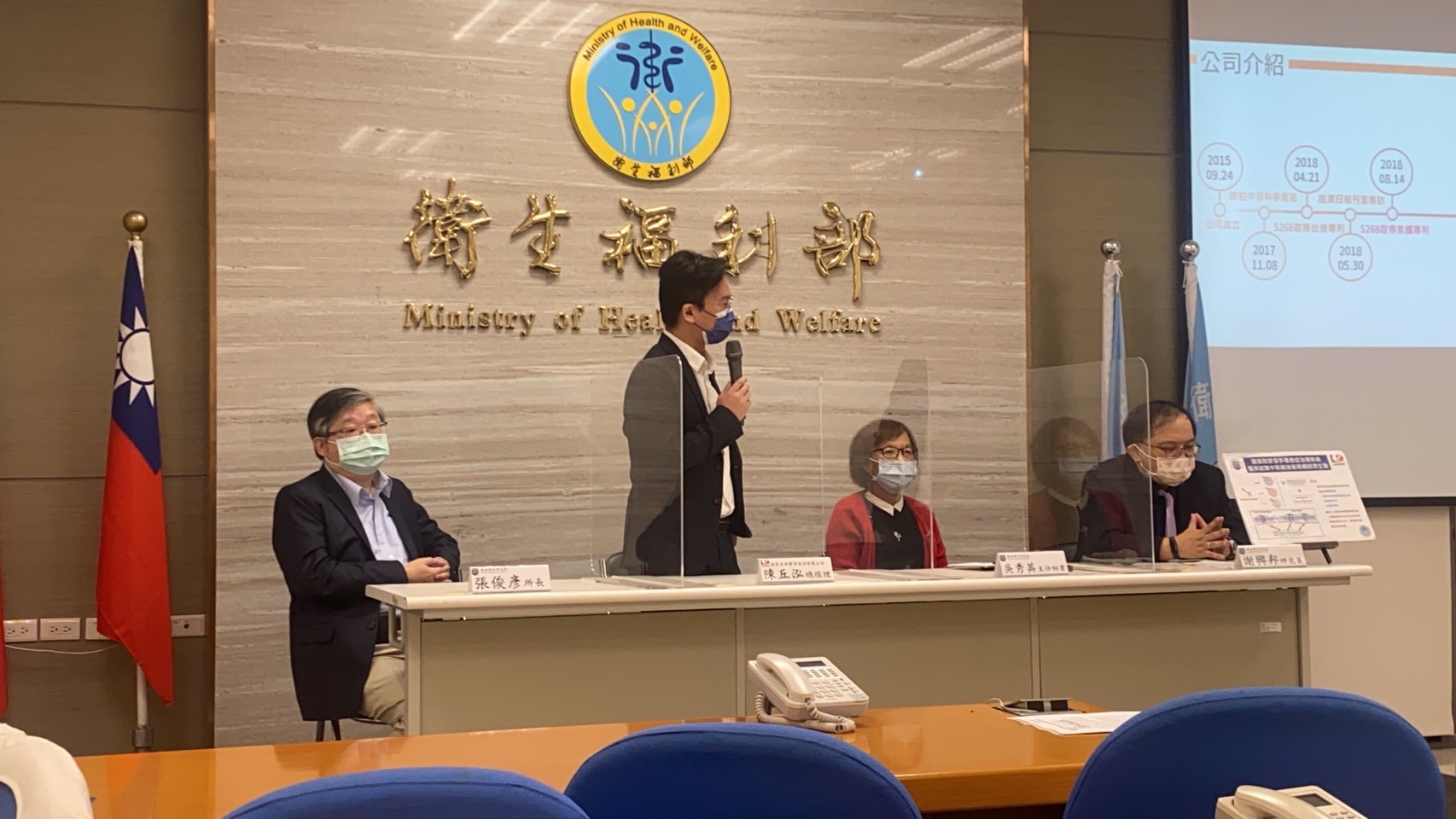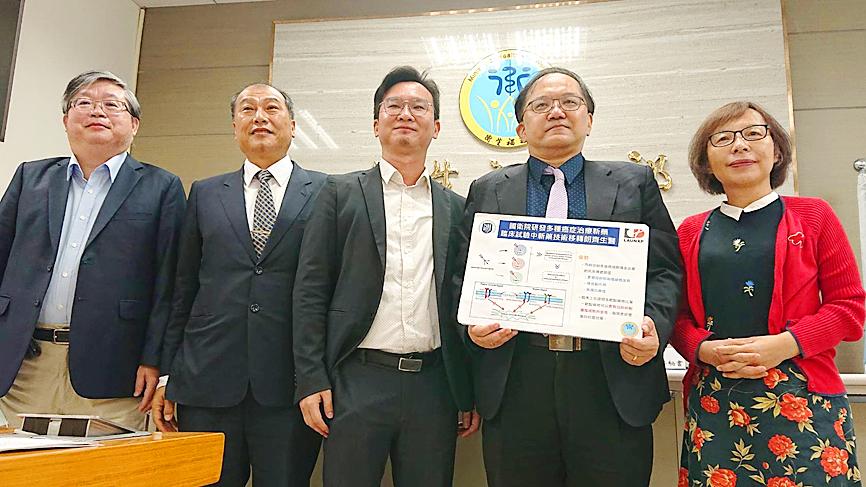-
国卫院临床试验中抗癌新药 技术移转朗齐生医
经济日报 / 记者谢柏宏/实时报导
国家卫生研究院今(22)日宣布,该院生技与药物研究所新药研发团队,运用激酶蛋白结构与活性优化的策略,成功开发『多靶点激酶临床药物DBPR114』,并已在2021年9月技术移转给朗齐生物医学公司,将可展开人体第一期临床试验。
国卫院表示,DBPR114对于肿瘤生长之动物模型有显著的药效活性,包括人类口腔癌、胃癌、肝癌、大肠直肠癌、胰脏癌、膀胱癌、摄护腺癌以及急性骨髓性白血病等,尤其在肝胆肠胃相关癌症特别有效。这项药物已于2017年取得美国和台湾试验中新药(IND)审查通过。
国卫院新药研发团队投注于蛋白质激酶为目标,利用高速平行合成技术及药物结构设计,成功发展出新颖多靶点激酶抗癌药物DBPR114。此新颖抗癌药物在低浓度下(0.1~100nM)可抑制至少15种致癌蛋白激酶的活性,并且在八种以上肿瘤生长之动物模型均有显著的药效活性,包括人类口腔癌、胃癌、肝癌、大肠直肠癌、胰脏癌、膀胱癌、摄护腺癌以及急性骨髓性白血病等致死率极高的癌症,极具新药发展潜力。
此项重大成果荣获2016年第26届王民宁奖和2018年科技部未来科技突破奖的殊荣,并且获得中华民国、美国、欧盟(指定11国家)、中国及南韩等多国专利。
朗齐生物医学公司运用独有的筛选技术投入新药研发,在二类新药及全新药都有突破性进展,并积极在癌症多靶点小分子及大分子专利布局。多靶点激酶抑制剂在肿瘤研究中的疗效、控制耐受性和抗药性方面具有一定的优势,预期可有更好的治疗效果。极具市场潜力的DBPR114于技术移转后,将由朗齐生医承接后续新药开发工作,接续推动研发成果产业化,国卫院亦将持续扮演协助的角色,期能透过技术移转接力合作,能连手推动DBPR114药物能早日上市,嘉惠于病人,串联起生医制药研发链,对产业创新动能注入实质效益,创造台湾新药开发之国际竞争力。 -
Cancer drug to start human trials next year
A new cancer drug under development could begin phase 1 testing in humans next year after it obtained good results in treating eight types of cancers in animal tests, the National Health Research Institutes (NHRI) announced yesterday.
Hsieh Hsing-pang (謝興邦), a researcher at the NHRI’s Institute of Biotechnology and Pharmaceutical Research (IBPR), said at a media briefing that 40 late-stage cancer patients who have not been helped by any available treatment, but are still in decent physical condition, are to be recruited for phase 1 clinical trials next year.
The new drug, known as DBPR144, is a small molecule known as a multi-target kinase inhibitor, Hsieh said.
From left, National Health Research Institutes’ (NHRI) Institute of Biotechnology and Pharmaceutical Research (IBPR) Director Chang Jang-yang, Launxp Biomedical Co board member Ko Chun-pei and general manager Chen Chiu-heng, IBPR researcher Hsieh Hsing-pang and NHRI Chief Secretary Wu Hsiu-ying attend a news conference in Taipei yesterday.
Photo: CNA
A kinase is an enzyme that controls important cell functions, and it can be active in the growth of some types of cancer cells.
The eight types of cancers against which it showed success through in vivo studies in animals were pancreatic, oral, gastric, liver, bladder, prostate and colorectal cancer, as well as acute myeloid leukemia, Hsieh said.
“Because it is particularly effective in gastroenterology-related cancers, we are likely to first target patients with pancreatic, liver, bladder and gastric cancer in the initial clinical trial,” he said.
Multi-target drugs, which take aim at several targets rather than more common medications that only target a single biological substance, more effectively inhibit cancer cell proliferation and overcome drug resistance, he said.
During the phase 1 trial, the volunteers are to be given DBPR114 once a week to determine safe dosages of the drug, Hsieh said.
Chen Chiu-heng (陳丘泓), general manager of Launxp Biomedical Co, which will be responsible for manufacturing the drug, said cancer patients from Taiwan and Australia are to be recruited to take part in the initial trial, which is expected to take two years.
Phase 2 and phase 3 trials, which should each take two to three years, will focus on cancers that responded promisingly to the drug in phase 1.
At least six years will be needed to complete human trials, Chen said.
“This novel, multi-targeted agent is our new hope for treating cancer patients,” IBPR Director Chang Jang-yang (張俊彥) said.
Cancer has been the top cause of death in Taiwan for 41 years, he said, and the five-year survival rates among patients with major types of cancer remained low, especially the 5 percent rate for people with pancreatic cancer.


